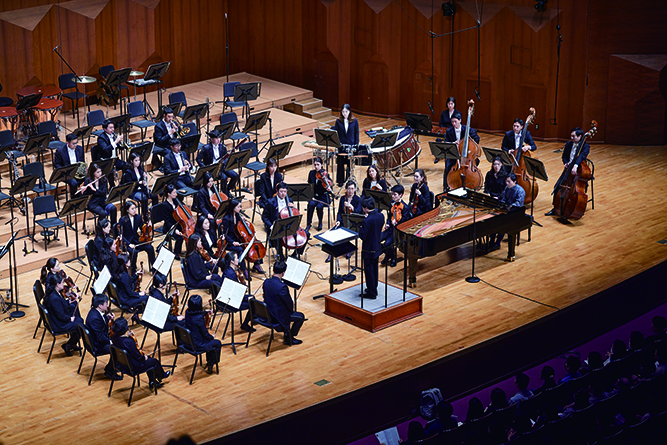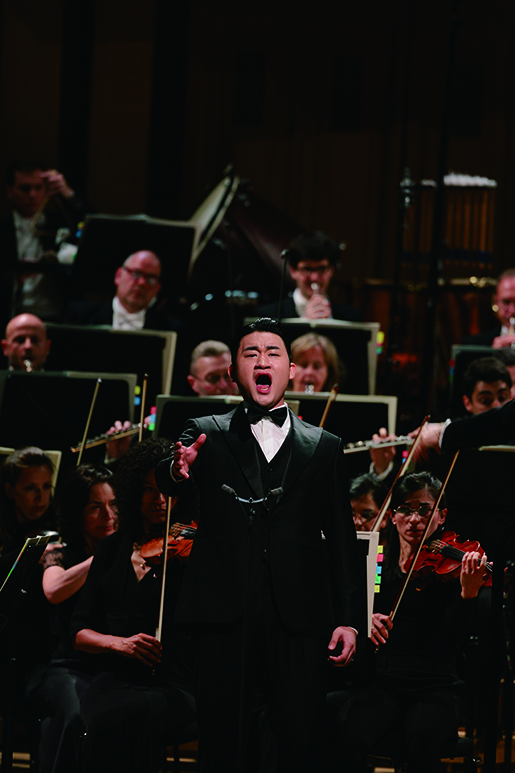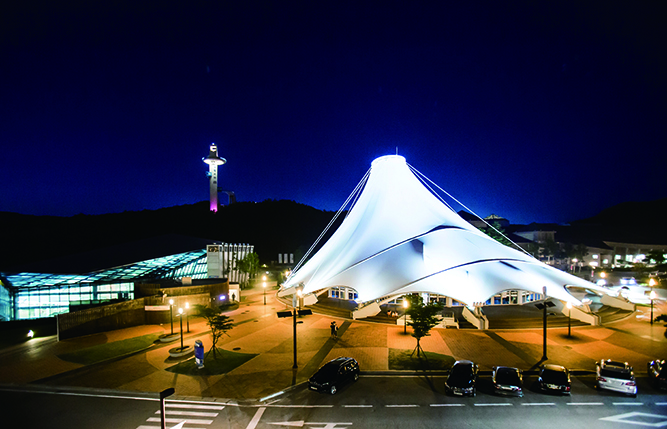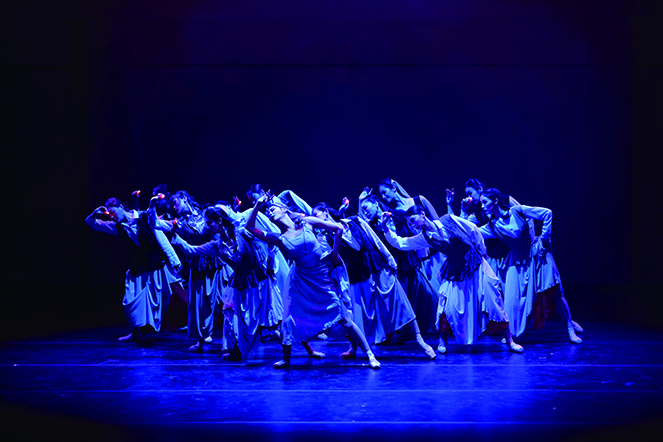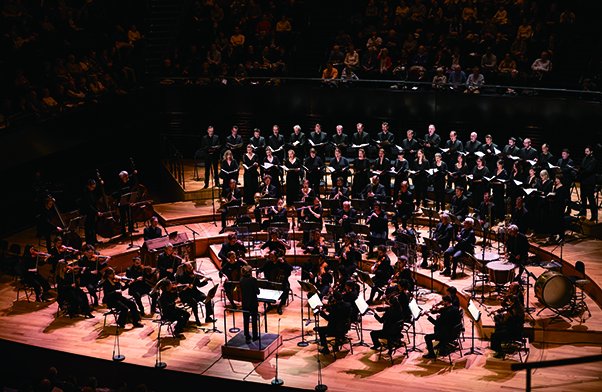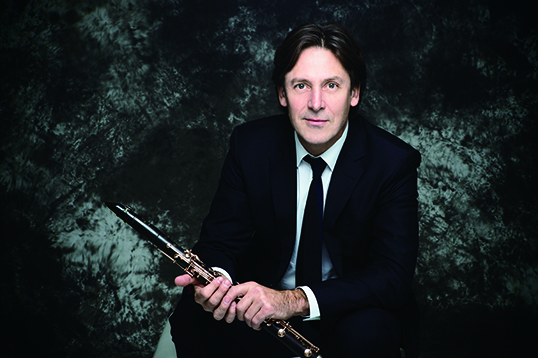영국 대중 오페라의 몰락
가치 없는 전통에 목매는 이사회가 자초한 결말

2022 시즌 내셔널오페라의 ‘토스카’ ©Genevieve Girling
꽤 오래전 어느 날 아침, 나는 런던 콜로세움 극장 꼭대기 층 사무실에 앉아 여왕의 사촌이 말하는 ‘대중이 실제로 원하는 것’에 관한 이야기를 듣고 있었다. 헤어우드 백작, 더 친밀하게 부르자면 조지 래슬스(1923~2011)는 1972년부터 1985년까지 내셔널오페라(이하 ENO)의 경영 관리자였다.
조지를 비롯한 그 누구도 ‘대중 오페라’가 왕의 손자이자 드넓은 요크셔 토지를 소유한 백작의 손에 운영되는 것을 반대하지 않았다. 이런 결정은 당장 런던에서 둘째가는 오페라 하우스의 자금 회수를 야기한 ‘일관성 없는 아마추어 행동 목록’에서 가장 기이한 사례로 남진 않았지만, 얼마 안 가 ENO는 대학 강의 속 ‘오페라를 이렇게 만들면 안 된다’의 전형으로 불리게 된다.
‘드림팀’과 함께했던 멋진 시절
ENO는 제1차 세계대전 당시 올드 빅 극장을 시작으로 기독교인 릴리안 베일리스(1874~1937)에 의해 설립됐다. 런던의 노동 계층이 정상급 연극·발레·오페라 공연을 지불할 수 있게 되면, 그들의 품격 또한 향상될 것이라는 베일리스의 믿음이었다. 1931년 그는 이즐링턴에 있는 새들러스 웰즈 극장을 개선하였고, 이 극장은 훗날 배우 존 길구드·로런스 올리비에와 무용수 마고 폰테인·프레더릭 애슈턴으로 이름을 날리게 된다.
극장가에서 ENO는 진가를 인정받지 못하는 신데렐라 신세였는데, 이는 베일리스가 노동 계층 관객을 위해 오페라를 영어로 부르도록 지시했기 때문이다. 코번트가든(로열 오페라하우스가 위치한 곳_편집자주)에서는 유명 가수들이 프랑스어·이탈리아어·독일어로 노래했고, 젠체하는 관객들은 영국인 배우를 깔보았다.
1945년 6월, 새들러스 웰즈 극장은 250년 만에 드디어 영어로 완성된 걸작, 벤저민 브리튼의 오페라 ‘피터 그라임스’로 마침내 명성을 얻게 된다. 물론 이 즐거움은 오래가지 못했는데 국가 자금 지원의 대부분을 코번트가든이 챙겨가면서 새들러스 웰즈 자금이 고갈됐기 때문이다. 1968년 ENO는 웨스트엔드로 이전하며 부흥의 시작을 알렸다. 건축가 프랭크 매첨(1854~1920)이 설계한 장엄한 런던 콜로세움은 3천 석에 육박하는 거대한 무대뿐만 아니라 경제적 유망성까지 보장하는 듯했다. 헤어우드 백작은 ‘내셔널오페라’로 사명을 바꾸었고, 지휘자 레지널드 구달은 앤드류 포터의 믿을 수 있는 새 번역으로 대작 ‘니벨룽의 반지’를 제작했다. 자회사인 오페라 노스도 백작의 소유지 근처인 리즈에 설립됐다.
백작이 CEO에서 이사회장으로 승진했을 무렵(항상 문제다), ENO는 객석을 절반만 채울 수 있는 공연에서 엄청난 에너지를 뿜어내고 있었다. 지휘자 마크 엘더, 오페라 감독 데이비드 파운트니, 최고 경영자 피터 조너스가 뭉친 이 에너지 발전소는 십 년간 손실의 피를 흘리며 대담한 공연을 선보였다. 파운트니는 새어머니와 마녀를 한 명의 메조소프라노가 맡아 프로이트적으로 분석한 ‘헨젤과 그레텔’을 무대에 올렸다. 조너선 밀러는 베르디 ‘리골레토’에 뉴욕의 마피아를 끌어와 새롭게 해석했고, 데이비드 올던은 ‘피터 그라임스’에서 어부가 아닌 마을 사람들을 가해자로 비틀어 풀어냈다. 데이비드의 형제인 크리스토퍼 올던은 ‘한여름밤의 꿈’의 배경을 소아성애 공립학교로 설정했고, 작곡가 해리슨 버트위슬의 ‘오르페우스의 가면’도 전 세계 초연으로 올랐다.
도전 의식을 불태우며 오페라를 보러 가는 이들에게 이때는 굉장한 시기였다. 물론 카르멘 팬들에게는 아니었을 것이다. 조너스는 밤마다 커튼 앞으로 나와 지붕 수리를 위한 기부금을 간청하곤 했다. 그는 1993년 뮌헨으로 건너가 유럽 최고의 국립 오페라단을 창립했고, 자기 사무실 옆방에 적자를 막는 걸 직업으로 하는 멋진 남성을 내게 소개해주기도 했다. ENO에는 그런 규율이 없었다.

2002년 엘리자베스 2세 여왕과 백작 조지 래슬스

마크 엘더(왼쪽), 피터 조너스(가운데), 데이비드 파운트니(오른쪽)

마크 엘더(왼쪽), 피터 조너스(가운데), 데이비드 파운트니(오른쪽)
가능성은 버리면서, 가망 없는 미래는 꿈꾸는가?
런던 콜로세움 극장의 다음 선봉장은 BBC 프로그램 제작자였던 데니스 마크스로, TV 오페라 사상 최저의 시청률을 자랑하는 자였다. 검증되지 않은 지휘자 시안 에드워즈에 초보 무대 감독과 함께하는 데니스에겐 가망이 전혀 없었으며, 런던 콜로세움 극장은 재정비의 필요성만 계속 커졌다. 당시에 내가 ‘텔레그래프’지에 썼던 칼럼 제목은 다음과 같다. ‘영국은 맞는가? 국립은? 오페라는?’ 그 누구도 해답을 갖고 있지 않아 보였다. 새로운 이사회가 총명한 니콜라스 페인을 코번트가든에서 모셔왔건만, 현대적인 무대를 놓고 의견이 엇갈리기만 했다. 이후 페인의 자리는 오페라 하우스 운영 경험이 전무한 아일랜드인 션 도란에게 돌아갔다. 이사회는 대체 무슨 생각이었을까?
내부에서 존 베리를 예술감독으로 승진시켰고, 이후 몇 년간은 떠들썩한 분위기가 지속됐다. 그는 효과적인 시범운전을 위해 뉴욕 메트로폴리탄 오페라, 특히 장기간 흥행작일 ‘나비부인’에 영화감독 앤서니 밍겔라·페니 우드콕·마이크 리를 데려왔으며, 존 애덤스·필립 글래스·니코 멀리와 같은 미국 작곡가를 선호하면서도 최상의 영국적인 연극성을 유지했다. 에드워드 가드너의 지휘하에 오케스트라는 최상의 소리를 냈다.
하지만 이것이 아니꼽던 한 의장은 베리가 지출을 너무 많이 하고 있다고 주장했고, 자금을 지원하는 잉글랜드 예술 위원회(Art Council England)는 일시적으로 지원 명단에서 ENO를 유예했다. 잇따라 선출된 다음 CEO들은 경영 컨설턴트와 어린이 TV의 중역이었다. 이번 달, 회사의 자금줄이 마침내 끊기자 한바탕 소란이 일었다. ENO는 많은 사랑을 받으며 가만히 누워 휴식을 취하고 있는 미혼의 고모와도 같은 존재였다.
이대로 몰락의 길을 걸어야 할까? 내가 숙고한 바에 따르면 몰락의 원인은 ENO가 오랜 시간 현실을 마주하는 걸 실패했기 때문이다. 설립 이념에 따라 오페라를 영어로 공연하는데, 넓디넓은 런던 콜로세움에선 소리가 잘 들리지 않으니 무대 위쪽에 자막이 표시된다. 우리가 목도하는 것은 시대에 맞는 번역이 우리의 시선 위에서 반짝이는 동안 리투아니아 출신 테너가 모국어를 잃은 베르디를 망치고 있는 장면이다.
이는 한 치의 비꼼 없이 딱 이사회 회의실 크기의 비영국적인 소규모 코믹 오페라였다. 내셔널오페라의 쇠퇴와 몰락은 예술계에 종사하는 모든 이들에게 쉽사리 잊히지 않을 교훈이기도 하다. ENO는 자금이나 애정이 부족해서가 아니라 의미를 추구하지 않아서 몰락했다.
전성기의 ENO는 가히 세계 최고였다. 뉴욕 브루클린의 한 현관 앞을 배경으로 한 쿠르트 바일의 ‘거리의 풍경’은 몹시도 강렬했으며, 파운트니와 베리가 연출한 바인베르크의 ‘승객’은 홀로코스트의 난제를 우리 몸과 마음속에 새겨주었다. 존 애덤스의 ‘닥터 아토믹’은 핵 위협을 소름 끼칠 만큼 실재하게 묘사했으며, 그 이전에는 줄리어스 시저로 분한 재닛 베이커가, 므첸스크의 맥베스 부인으로 분한 조지핀 바스토가 있었다. 기풍과 용기, 기개와 색채가 있던 단체였다. 현존하는 그 어느 오페라 하우스가 이러한 가치를 내세울 수 있겠는가? 번역 evener
노먼 레브레히트 칼럼의 영어 원문을 함께 제공합니다
본 원고는 본지의 편집 방향과 일치하지 않을 수 있습니다
One morning half a lifetime ago I was sitting in a garret office at the London Coliseum listening to the Queen’s cousin tell me what the public really wanted. The Earl of Harewood – George, when you got to know him better – was managing director of English National Opera from 1972 to 1985.
Neither he, nor anyone else, saw any kind of conflict between the ‘people’s opera’ being run by a king’s grandson, an Earl with a vast estate in Yorkshire. This was by no means the weirdest of a catalogue of anomalies and amateurisms that has now led to the defunding of London’s second opera house. Before long, ENO will be taught in college as a model in how not to make an opera.
The company was founded at the Old Vic during the First World War by Lilian Baylis, a Christian spinster who believed London’s working classes would be elevated by having affordable world class theatre, ballet and opera. In 1931 she upgraded to Sadler’s Wells Theatre in Islington, where John Gielgud, Laurence Olivier, Margot Fonteyn and Frederick Ashton would all make their names.
Opera was the Cinderella of the arts, not least because Bayliss had it sung in English for the benefit of her proletarian audience. At Covent Garden, the stars sang French, Italian and German and the snobs looked down on local talent.
Sadlers Wells finally hit the headlines in June 1945 with Benjamin Britten’s Peter Grimes, the first English masterpiece in quarter of a millennium, but joy was short-lived as Covent Garden took the lion’s share of state funding and the Wells ran dry. A 1968 move to the West End signalled a revival, with Frank Matcham’s majestic Coliseum offering not only the biggest stage but almost 3,000 seats, promising economic viability. Harewood renamed the company English National Opera. Reginald Goodall created a stupendous Ring cycle in a credible new translation by Andrew Porter. A subsidiary company, Opera North, was set up in Leeds close to Harewood’s estates.
By the time the Earl rose from CEO to board chairman (always a mistake), ENO was performing at high voltage to half-empty seats. A Powerhouse team of conductor Mark Elder, director David Pountney and chief executive Peter Jonas led a decade of bold shows and bleeding losses. Pountney staged a Freudian analysis of Hansel and Gretel with stepmother and witch sung by the same mezzo. Jonathan Miller reset Verdi’s Rigoletto among New York’s Mafia. David Alden tweaked Peter Grimes with the village, not the fisherman, as guilty party. His brother Christopher Alden set A Midsummer Night’s Dream in a paedophile public school. Harrison Birtwistle’s momentous Mask of Orpheus had its world premiere.
These were exciting times for those of us who go to opera to be challenged, less so for lovers of Carmen. Jonas appeared nightly in front of the curtain, begging us for donations to fix a leak in the roof. In 1993 he moved to Munich, making its state opera the best in Europe. He showed me a nice man in the next office whose job it was to protect him from deficit. ENO never had that discipline.
The next boss at the Coliseum was a BBC programme maker, Dennis Marks, who boasted the lowest-ever ratings for a TV opera. With an untested conductor Sian Edwards and novice stage directors, Dennis never stood a chance, the more so with the Coliseum in need of refurbishment. I wrote a Telegraph column titled ‘Is it English? Is it National? Is it Opera?’ Nobody seemed to have an answer.
A new board recruited the knowledgeable Nicholas Payne from Covent Garden, only to fall out with him over modernist stagings. Payne was replaced by an Irishman Sean Doran, who had never run an opera house before. What were they thinking?
John Berry was promoted from within to artistic director and, for a few years, kept things buzzing. He brought in film directors – Anthony Minghella, Penny Woolcock, Mike Leigh – to create shows that were effectively dry-runs for New York’s Metropolitan Opera, notably a long-running Madam Butterfly. Berry favoured US composers – John Adams, Philip Glass, Nico Muhly – while maintaining the best of English theatricality. The orchestra, under Ed Gardner, never sounded better.
However, an abrasive chairman claimed that Berry was overspending. Art Council England, the funding body, temporarily suspended ENO from its portfolio. The next CEOs were, successively, a management consultant and a youth-TV executive. When the company’s funding line was finally cut this month, there was little uproar. ENO was a much-loved maiden aunt being laid gently to rest.
Did it have to die? The cause of death, in this coroner’s verdict, is a prolonged failure to address reality. Take opera in English, a founding act of faith. In the vast Coliseum the words were hard to hear, so surtitles were screened above the stage. We faced a Brobdingnagian drama of a Lithuanian tenor mangling Verdi in foreign tongue while a trendy translation flashed above our eyelines.
This was comic opera on a boardroom scale with a lack of irony that was lamentably unEnglish. The decline and fall of England’s national opera is a lesson to all who work in the arts that you cannot kick problems down the road. ENO died not for lack of cash or love but for want of definition.
Remembered at its best, ENO was a world-beater. Kurt Weill’s Street Scene, set on a Brooklyn front stoop, has never been so powerful. The Pountney-Berry production of Weinberg’s The Passenger awoke hearts and minds to a Holocaust conundrum. John Adams Doctor Atomic made nuclear threat chillingly tangible. Further back, there was Janet Baker as Julius Caesar, Jo Barstow as Lady Macbeth of Mtsensk. This was a company with ethos and courage, character and colour. How many surviving opera houses can lay claim to those values?
글 노먼 레브레히트

